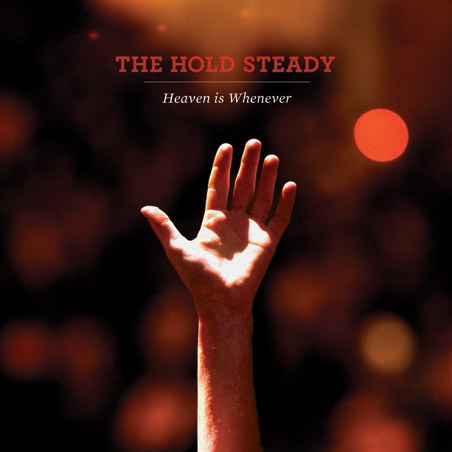Just in time for summer, The Hold Steady returns with another set of hyper-literate bar rock. It will no doubt make a great soundtrack for the season, but the question remains whether it will hold its own in the band’s strong catalog.
There are a few fist-pumping, shout-along chorus-filled rockers in the mix, with “Our Whole Lives” leading the way. There’s nothing quite as overtly summer-related as “Constructive Summer,” but there’s no doubt this is a summer record. Anthems “The Smidge,” “Rock Problems” and “Our Whole Lives” fit the bill for warm weather party tracks, while album closer “Slight Discomfort” ends with the sound of katydids in the night, strengthening the summery vibe.
This record is likely the least subtle of The Hold Steady’s catalog. Sure, there are slow tracks, but the band’s classic rock influences have never been more apparent, which may be attributed to keyboardist Franz Nikolai’s departure. The loss of Nikolai resulted in a beefing up of the record’s guitar sounds. Most notably, the rhythm figures are meatier and hearken back to the riff-based classic rock of AC/DC and Cheap Trick more than ever before. “The Smidge” features the most cowbell ever to grace a Hold Steady track and one of Kubler’s guitar fills pays direct and blatant tribute to AC/DC’s “Whole Lotta Rosie.” Furthermore, Kubler unleashes several of his finest solos and dips into his effects pedal rack, throwing around double-tracked harmonies, echo and distortion.
The focus on guitar is fine, but it has a side effect: it sells this band’s talents short. Unfortunately, the songwriting seems to have followed suit. This, the fifth Hold Steady album, finds Finn’s lyrical motifs beginning to wear thin. For example: how many times has he rhymed “cigarette” with something at this point? Heaven is Whenever certainly adds to that tally, most creatively coupling it with “majorettes.”
Elsewhere, the plot of “Hurricane J” feels a little like a more uptempo rehashing of “Lord, I’m Discouraged.” For the album in general, it’s the same old story: the girls want to dance at clubs and engage in self-destructive behavior, the boys want to get with those girls, and Finn chronicles it all for his audience. His viewpoint has gradually changed from active participant in the debauchery to older, wiser outside observer, but it all seems a little too familiar.
Purists who have been following Finn’s mythology since Lifter Puller might bemoan his continued progression from sprechgesang to actual singing, if only because his delivery was part of what made the band so unique. Heaven is Whenever finds Finn belting the melodies – and singing real notes – like never before. In any case, his distinctive vocals are still abundant.
Finn’s more melodic approach coupled with the presence of new instrumental sounds – like the swampy slide acoustic guitar on “Sweet Part of the City” and the clarinet solo on “Barely Breathing” – might trick some into believing this is The Hold Steady expanding its musical horizons instead of staying stuck in its rut. The aforementioned adherence to the “Hold Steady formula” means the band isn’t exactly experimenting.
For musical growth and maturation, Heaven is Whenever might have benefited from stronger production. The band brought in Dean Baltulonis, who produced the first two Hold Steady records, to handle the mix. He’s done his best to play up the “guitar album” status of the record, pushing the guitars to the front and hiding all other instruments. There’s a horn section on “Our Whole Lives,” but you’d hardly know it. Baltulonis buried it deep in the mix, to the point that it barely has a reason to exist at all.
The key to deciphering Heaven is Whenever’s strength as an album is to pit it against the other records in The Hold Steady’s discography. On its own, this is an above-average rock ‘n roll album with pleasingly verbose lyrics and plenty of rocking potential. Unfortunately, it often pales when compared to its predecessors. Even Stay Positive, which suffered the same judgments when it was released, has a deeper, fuller sound. The void left by the missing keyboards on Heaven is Whenever is far more noticeable when judged against “Sequestered in Memphis” or “Stay Positive.”
But this is a new Hold Steady album, which should be reason enough to buy it. Great bands always struggle to match their past musical output. Take it for what it is – a guitar-centric party rock record – and it won’t disappoint.

